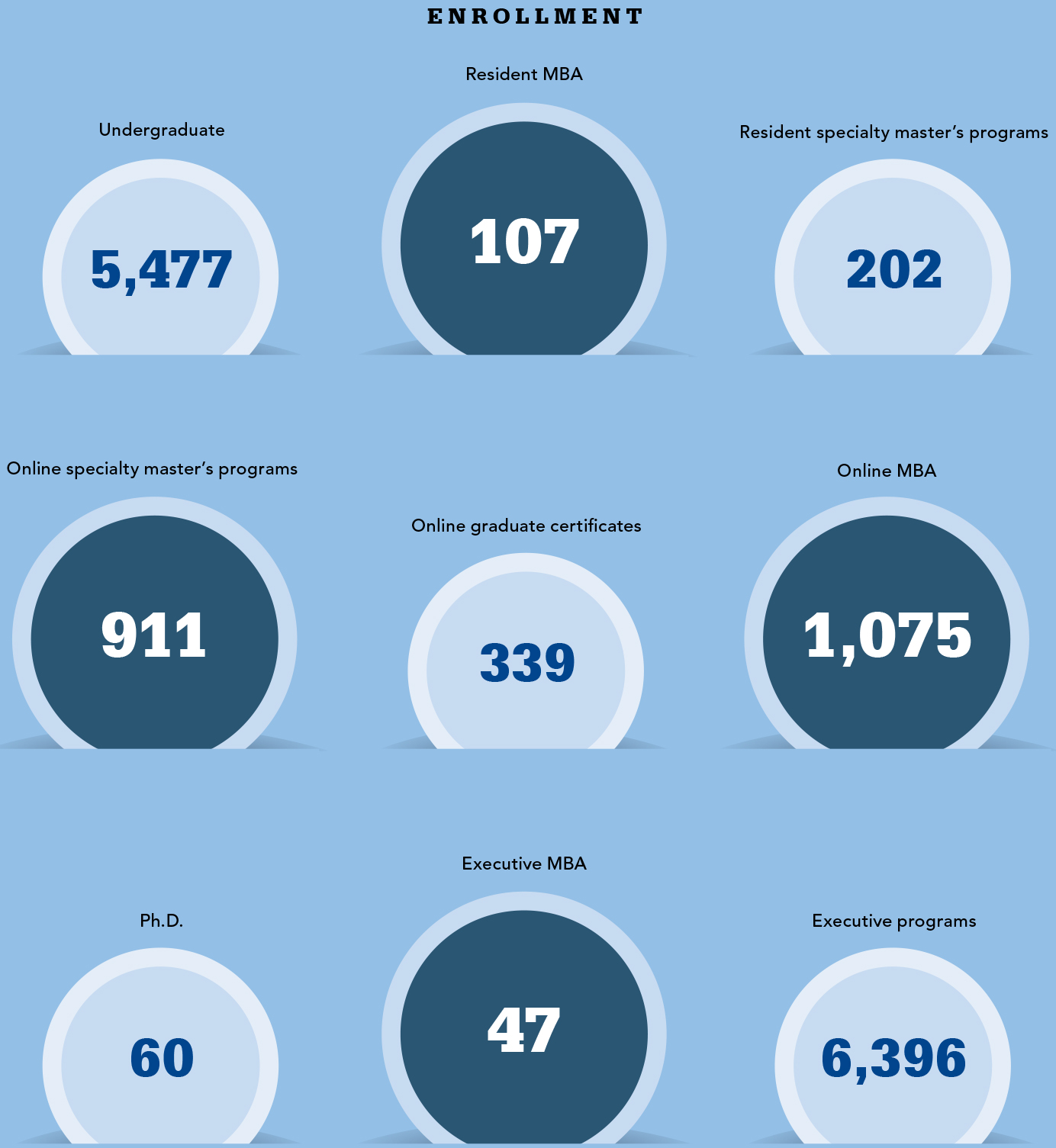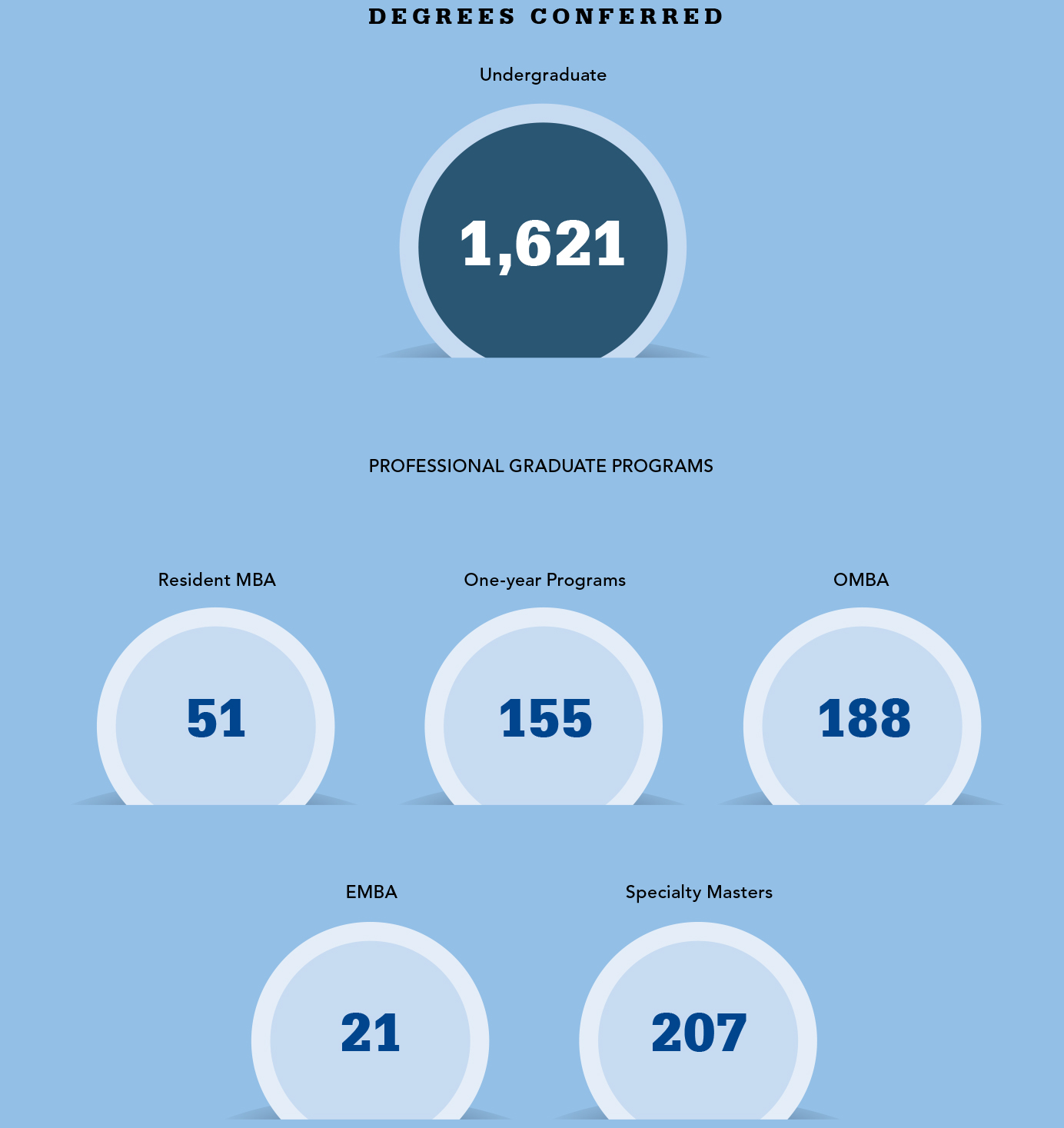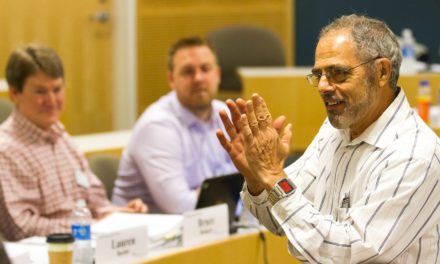How two physicians and longtime friends turned to the Penn State Online MBA to enhance their leadership skills
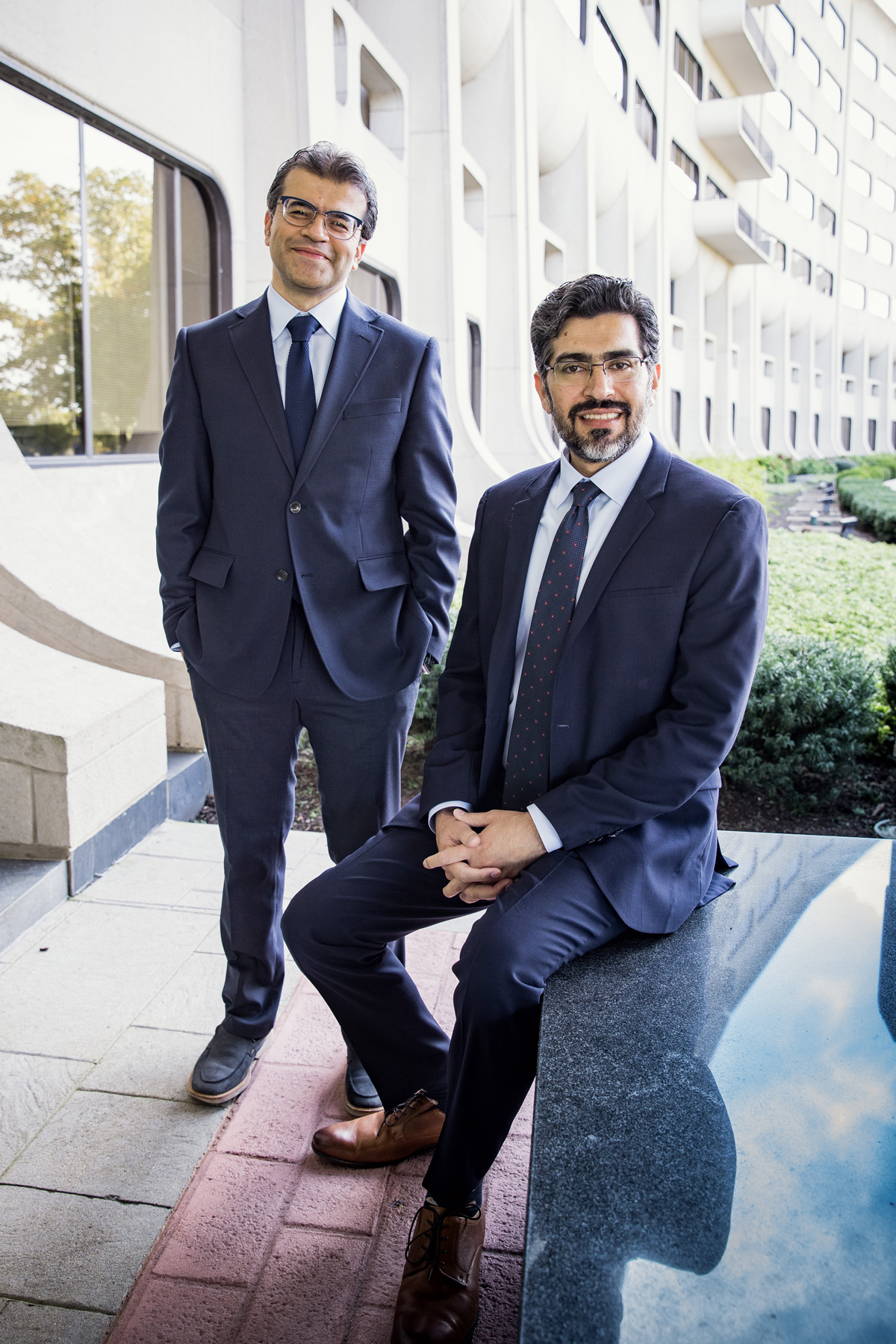
Physicians Faisal Aziz and Umar Farooq turned to the Penn State OMBA to sharpen their business acumen and strengthen their voice in an increasingly complex system.
Penn State Health Milton S. Hershey Medical Center doctors Faisal Aziz and Umar Farooq mean business. Eager to advance their careers and strengthen the voice of physicians in an increasingly complex system, the longtime friends from Pakistan have opted to add a business education to their already extensive curriculum vitae.
Aziz, who is a professor of surgery and leads the Division of Vascular Surgery, and Farooq, an associate chief medical officer and associate professor of medicine, are pursuing the Penn State Online MBA, a program that is led by the Smeal College of Business and delivered through Penn State World Campus.
The doctors have known each other for 26 years, attended medical school together at King Edward Medical University in Lahore, Pakistan, and have been colleagues at Penn State Health since 2011. They recently set out on the OMBA trail to attain a better grasp of the business aspect of health care.
Aziz is of the belief that career-oriented people should add something significant to their skillset each decade of their respective careers. And when it comes to the delivery of health care in an increasingly complex environment, Aziz says physicians should have more of a voice in that process.
“There’s need for more and more physicians to know about the basics of health care economics. Unless physicians are knowledgeable about the business of health care, they won’t have a seat at the discussion table.”
Farooq explains the criticality of understanding, managing, and meeting the complex needs and expectations of patients; providing the best possible access to care; and ensuring the highest level of quality possible. “That is the business of health care,” he says. “To provide the best patient experience is the No. 1 fundamental goal. And how do you also ensure a positive experience for the staff, physicians, and nurses so they continue to stay? It takes a lot of effort.”
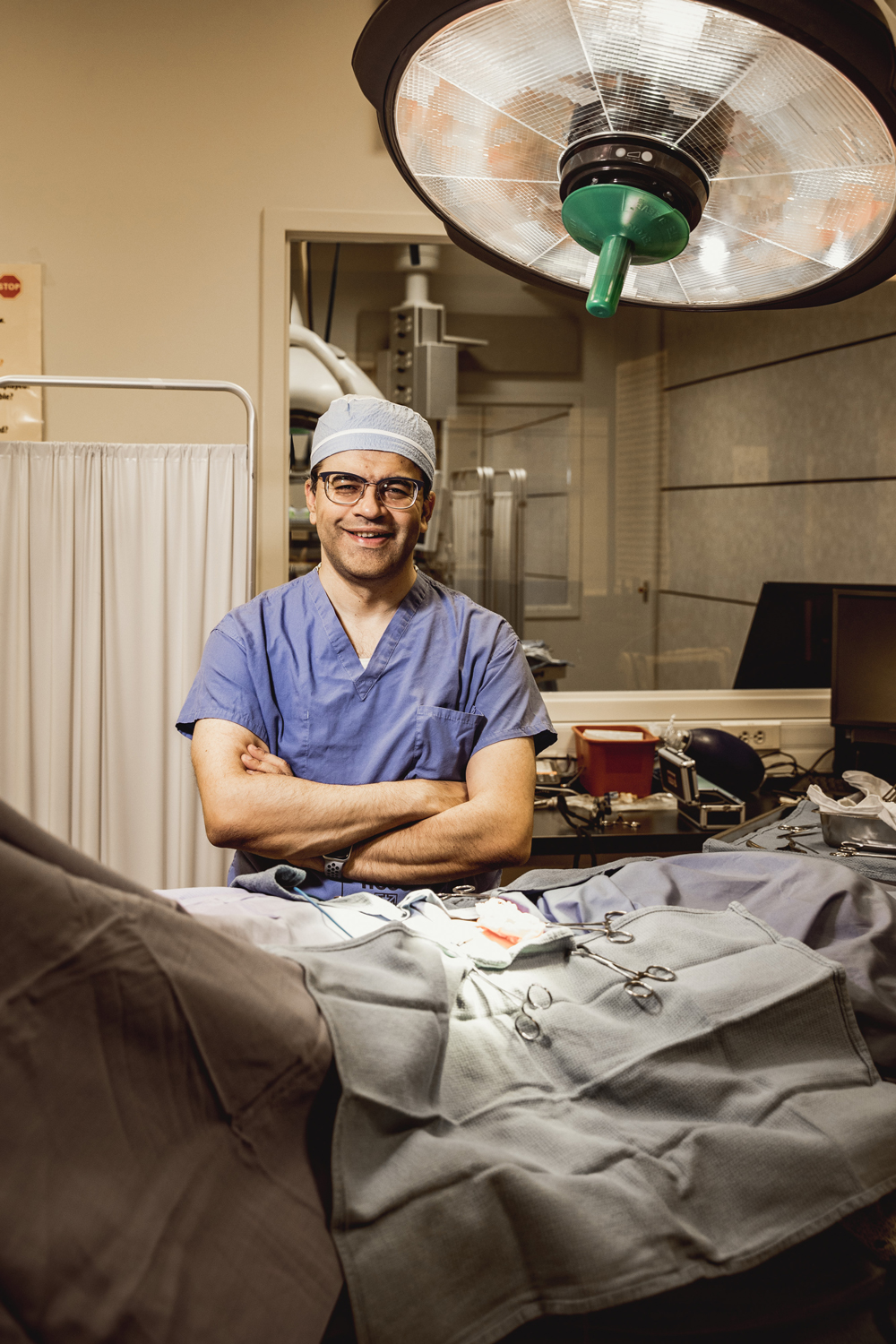
Faisal Aziz, M.D., is a professor of surgery at Penn State College of Medicine and leads the Division of Vascular Surgery at Penn State Health Milton S. Hershey Medical Center.
Farooq explains that small hospitals and physician practices have given way to large, complex health care systems in communities across America – mostly to provide competitively superior programs and services to the patients who live there. “We have to establish the business, maintain the business, grow the business, make sure nobody steals our business, and we need to keep growing,” he says. “Without a growth mindset, we are not very successful. We want to be a highly reliable organization, and to become that organization, so many things must happen behind the scenes.”
Each doctor took economics over the summer. “I’ve been making budgets for my division for such a long time, but I feel silly that I’ve been doing that without having the basic knowledge of business,” Aziz says. “I really love it because I feel like I’m discovering something which I never knew before.”
Farooq says the classes progressively would increase in complexity and difficulty. “The business school has assigned us advisers who are really shaping the classes in a way that we do foundational classes first and then we go to the advanced classes,” Farooq says. “So, by the time we go through advanced classes, we are ready for the level of difficulty.”
The program is constructed to have a “best of both worlds approach to learning,” according to Stacey Dorang Peeler, managing director of the Penn State Online MBA. “All required activities and assignments (except for the three-day residency) are asynchronous. We also offer synchronous sessions for those who want more connection,” Peeler says.
“Those are encouraged but never required. Students can also choose how many classes they take at one time to control their workload in a way that is appropriate for their specific needs. If something unexpected occurs, there’s also no issue taking a semester (or more) off and returning to the program at a later date when their schedule allows them to concentrate on coursework.”
“I’ve been making budgets for my division for such a long time, but I feel silly that I’ve been doing that without the basic knowledge of business.”
Farooq, who along with Aziz is scheduled to complete the online degree in 2024, says the OMBA teaches the fundamentals of business while offering opportunities to specialize. “The program is not just a one-size-fits-all type of MBA program,” he explains. “Yes, there are some basic courses, but when you add the specialized courses, you can pick your concentration.
“We picked the health care concentration. While we are covering the gaps in knowledge for the basics of business — like economics and finance and the numbers game and how the markets run — we have the opportunity to enhance and to improve our current knowledge of health care administration. At the end of the program, I will become a better version of myself and serve my organization for the better.”
As a division chair, Aziz says he is now managing complex operational and financial issues related to vascular surgery across the burgeoning Penn State Health system. “I’m hoping that with the knowledge I’m going to gain from this MBA, I’ll be able to apply it not only to our folks at Hershey Medical Center, but across the health system; that would be helpful within the bigger picture.”
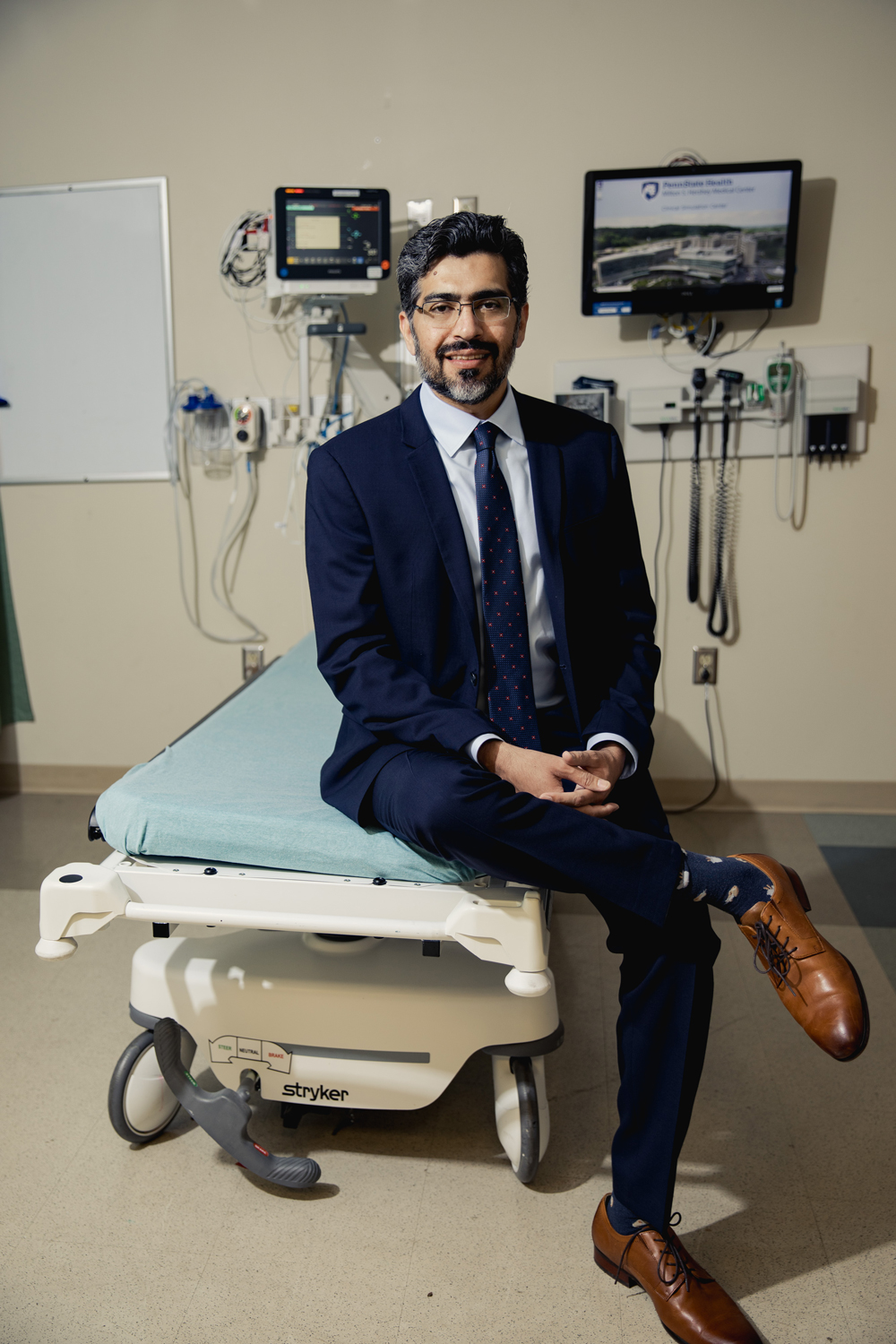
Umar Farooq, M.D., is an associate chief medical officer at Penn State Health Milton S. Hershey Medical Center and associate professor of medicine at Penn State College of Medicine.
Peeler notes that the Penn State Online MBA uses partnerships across many Penn State units and campuses to offer a highly customized experience. “With 27 concentration options, no matter what someone’s academic and professional background is, we likely have something in the area in which they have interest,” she says. “In addition, our Creative Team Model incorporates the expertise of faculty, learning design, teaching support specialists and learning analysts to ensure the best classroom experience.”
While Farooq reiterates the benefits of the program’s structure and flexibility, more important to him is its credibility and commitment to excellence. “Both of us have previously attended Penn State Leadership Academy, which is run by Smeal,” Farooq says. “There is credibility, there is convenience, and we have loyalty to Penn State. I’ve already completed a Master of Science through Penn State, and I did my fellowship training here. We have been faculty here, so we have a lot of loyalty to the University; that’s why we chose the (Penn State) Online MBA program.”
They also agree they’ll be business partners for life with Smeal. “The business world is a game of collaboration,” Farooq says. “You only grow by sharing, by engaging other people; I’ll probably engage some of those (Smeal) folks who I know, who I trust, who I validate. This (program) is helping me in many aspects of life.”
Smeal By the Numbers
In 2021-22, Smeal provided programs, support, and resources for every career stage and life circumstance.
